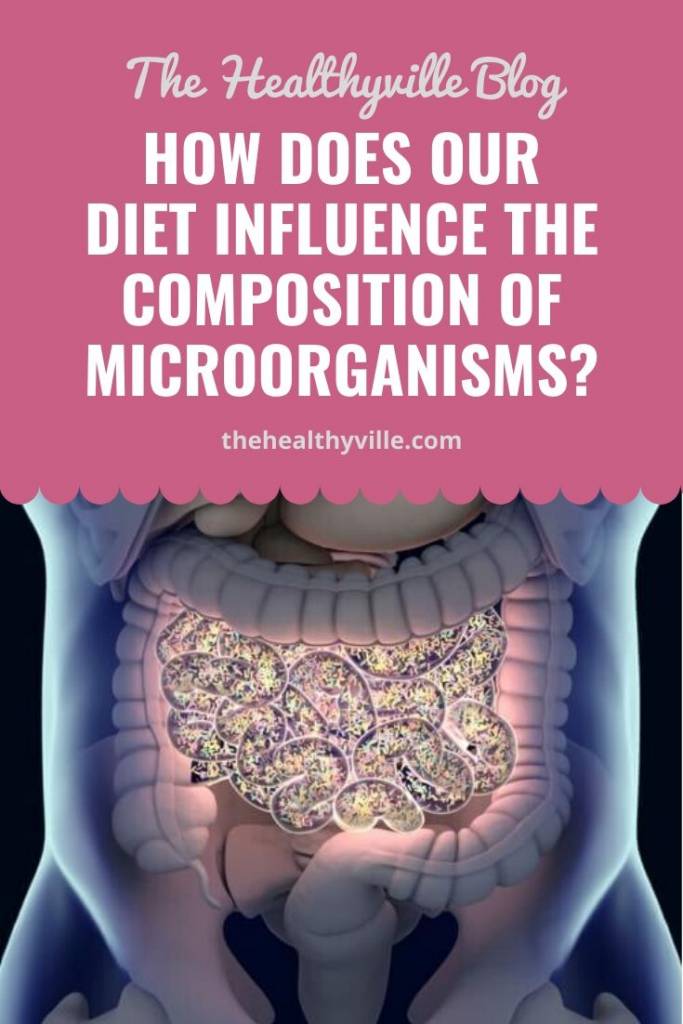Food and intestinal microbiota are closely related, since everything we eat directly influences the composition of microorganisms. See why and how.
Feeding significantly influences the intestinal microbiota. Our eating habits alter the composition of microorganisms that we have in the intestine.
What we eat greatly influences the structure and composition of our gut microbes. The first proof of this was obtained by comparing fecal microbiota samples from different mammalian species. Do you want to know how the diet influences the intestinal microbiota and what diet should we follow? You will discover everything here!
What is the intestinal microbiota?
The intestinal microbiota is the collection of microbes that reside in the gastrointestinal tract. It consists of more than 1,000 different species that provide 3.3 million unique microbial genes in the gastrointestinal tract of humans.
This complex ecosystem includes bacteria, viruses, fungi and parasites that live in symbiotic relationship with their host. Some other microbes that have potentially pathogenic characteristics also coexist.
Different mechanisms involved in the maintenance or alteration of this ecosystem have been studied. As they are:
- Genetics
- Direct contact with the mother’s vaginal flora during childbirth
- Lactation
- Excessive use of antibiotics
- Feeding
For example, babies born vaginally acquire the mother’s vaginal flora that includes Bacteroides, Bifidobacterium, Lactobacillus and Eschericihia coli. On the other hand, those born by caesarean section have increased levels of skin bacteria such as Staphylococcus spp.
What does it mean for our health?
Beyond the postnatal period, the microbiota is necessary to induce regulatory mechanisms to maintain mucosa and immunity. So an adequate ecosystem will allow to generate optimal responses against pathogens. On the contrary, an alteration of the ecological balance known as intestinal dysbiosis will increase inflammation and susceptibility to infections.
This could generate diseases such as obesity, type 2 diabetes, cardiovascular pathologies, neurodegenerative diseases or cancer. That is why it is so important to take care of our microbiota.
Antibiotics
Antibiotics cause alterations in the intestinal microbiota in the same way as feeding
How are food and intestinal microbiota connected?
Food is one of the most important factors for our microbiota. Different diets are being studied in relation to the intestinal microbiota.
A diet:
Rich in fiber, fruits and vegetables beneficially affects the composition of the microbiota.
The increase in protein and animal fat along with the absence of dietary fiber increase the abundance of microorganisms tolerant to bile salts.
The dietary differences between different human populations that could explain the variability in the taxonomy of the intestinal microbial ecosystem in the different populations have been studied. For example, the microbiota of African children has a greater presence of spices of the genus Prevotella, less presence of Bacteroides species, greater microbial diversity and greater production of short-chain fatty acids compared to the microbiota of European children.
This difference is mainly due to diet. The agrarian diet of African children is rich in whole grains, fiber and vegetable protein, which benefits the microbiota compared to the diet of Western children. The latter have diets rich in protein, animal fats, sugars, refined cereals and poor in fiber.
Mediterranean diet
The most studied diet is probably the Mediterranean diet. In different studies it has been seen how this diet, due to its content in polyunsaturated and monounsaturated fatty acids, fiber and antioxidants, has important benefits in preventing the onset of cardiovascular diseases. In the case we are dealing with, we know that it participates in the maintenance of a healthy microbial ecosystem.
And, in patients with metabolic syndrome, an intervention study was carried out for two years, comparing a Mediterranean diet with a low-fat and high-carb diet. The results were that long-term consumption of a Mediterranean diet makes beneficial bacteria recover in this type of people. In addition, the Mediterranean diet improves insulin sensitivity in people with obesity.
One of the parameters considered most beneficial in the Mediterranean diet is the high polyphenol content it contains. Although these molecules are not absorbed at the intestinal level, when they reach the colon they are metabolized by the intestinal microbiota, which results in different phenolic acids.
What diet should we take?
Having seen these studies we can come to the conclusion that it is better:
Diet rich in polyphenols and fiber contained in vegetables, fruit and legumes
Smaller measure products of animal origin (fish, meat, egg, dairy)
Eliminate refined foods and industrial products
Following this type of diet the body can maintain a microbial diversity and avoid certain diseases.
Don’t forget to SHARE the food and intestinal microbiota details with your friends and family on your social networks!

